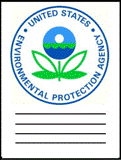United States Environmental Protection Agency

United States Environmental Protection Agency: Publications
Document Type
Article
Date of this Version
2007
Citation
Published in Conservation Biology(2007) 21:1, 12–17. DOI: 10.1111/j.1523-1739.2006.00639.x
Abstract
I am concerned that we scientists in conservation biology, ecology, natural resources, environmental science, and similar disciplines are collectively slipping into a morass that risks marginalizing the contribution of science to public policy. Advocating personal positions on ecological policy issues has become widely tolerated as acceptable professional behavior and is even encouraged by a substantial fraction of the scientific community (Marris 2006; Scott et al. 2007). Scientists are uniquely qualified to participate in public policy deliberations and they should, but advocating for their policy preferences is not appropriate.
Despite an extensive debate in the literature on the proper role of science and scientists in policy deliberations, points of general agreement and specific differences often get lost amid the semantic confusion caused by inconsistent definitions for key words or concepts (Trudgill 2001). Table 1 provides the precise definitions I have used throughout this essay.
Those of us who provide scientific information to decision makers and the public should strive to be more vigilant, precise, demanding, and rigorous in distinguishing between policy-neutral and policy-inculcated scientific information. Science is only one element of the complex deliberations over major ecological policy questions that take place in a democracy, but science is critical, and scientists can and do play an important role (Sarewitz 2004; Lackey 2006).
My unequivocal overall view on the role of scientists in ecological policy and management is, first, that scientists should contribute to the policy process. This is not only the right thing to do, but we are also obligated to do so, especially if our work is funded by public resources. I do not hold with the notion that it is sufficient for scientists to publish their findings solely as scholarly papers. The assertion that scientists should be involved in providing and explaining the underlying science to help resolve important policy questions is, for me, a given.
Second, when scientists contribute to policy analysis and implementation, they must exercise great care to play an appropriate and clearly defined role. The interface between science and policy can be bewildering for many of us who develop, provide, or interpret scientific information. Working at the interface is also where many of us mislead or confuse decision makers and the public because we let our personal policy preferences color our science.
The formidable challenge of developing and providing technical and scientific information to inform policy deliberations in an objective and relevant way is not unique to ecological fields (Rykiel 2001). Whether one is working as a stock analyst in the research unit of a brokerage firm (Boni & Womack 2003), a medical expert testifying in malpractice trials (Caldwell 2005), a funding officer at an international development agency that might finance a proposed shrimp-farming operation (Béné 2005), or an intelligence analyst within a government national security agency (Armstrong 2002), the job of providing accurate, relevant, and policy-neutral information is always a challenge.

